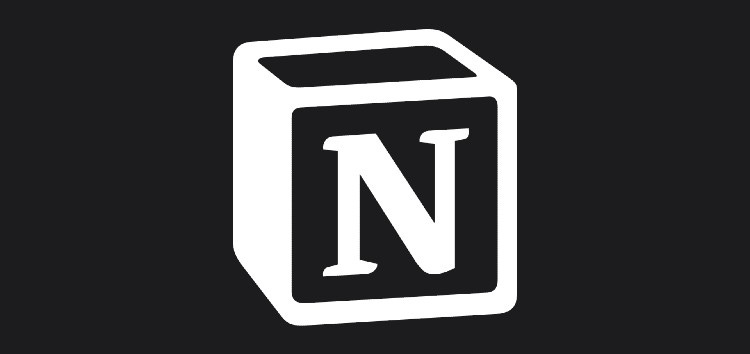The Future of Notion: An Open Letter on Enhancing User Experience with GPT-based Integration
Envisioning a future where Notion's knowledge base is supercharged with GPT-based AI, enhancing user experience and productivity.
Dear Notion Team,
I trust this message finds you well. As a devoted user and a paid subscriber of Notion, I have experienced firsthand how transformative your platform can be. It has dramatically improved the way I manage my knowledge and productivity, and for that, I am immensely grateful.
Today, I am writing to propose a potential enhancement to Notion's already robust suite of tools. This suggestion revolves around the integration of GPT-based capabilities into Notion's existing user knowledge base. I believe this could significantly augment the platform's functionality and user experience, taking Notion's transformative impact to even greater heights.
As you are undoubtedly aware, GPT-based models like GPT-4 have brought about a paradigm shift in our interaction with technology thanks to their exceptional ability to understand and generate contextually relevant responses in natural language. Notion's current AI integration is a testament to this, providing a seamless and practical implementation of generative AI for text. It's arguably one of the most user-friendly AI integrations I've encountered, enhancing writing quality, aiding in drafting, and offering the convenience of AI access across all notes, documents, and projects. Notably, Notion's innovative approach to the UI design for this integration has set a new standard in the industry, with many others following suit.
However, I believe there is an opportunity to take this a step further. While the current AI integration is impressive, enabling a more interactive and contextually aware chat feature that manages the entirety of a user's account could elevate the user experience to new heights. This would not only enhance the functionality of Notion but also redefine how users interact with their stored knowledge. With Notion's track record of leading UI design for AI integrations, I am confident that this proposed feature could once again set a new benchmark in the industry.
The integration I envision would involve a GPT-based model that could perform a deep analysis of a user's Notion pages and databases, regardless of the file type. This model would be capable of identifying crucial keywords, discerning overarching topics, and recognizing relationships between disparate pieces of information across a variety of file formats, including text files (.txt, .rtf), word processing files (.doc, .docx, .odt), PDF files (.pdf), ePub files (.epub), Markdown files (.md, .markdown), HTML files (.html, .htm), and even image files (.jpg, .jpeg, .png, .gif, .bmp, .tiff). The result would be a dynamic and intelligent knowledge base tailored to each user's unique content.
Imagine a chat box on the side of the user's window, maintaining a history of interactions and possessing the ability to link and connect pieces of information within the chat effectively. This chat interface could even be tasked with setting up entire workspaces, performing calculations, or automating processes within Notion, all through natural language commands.
As an author and blogger, I find the potential of this integration particularly exciting. Having all my resources, books, papers, and other materials, which I already store in Notion, readily queryable would be a game-changer. Imagine being able to build on your blog contextually, having all your past blog posts at your fingertips, and being able to avoid redundancies and repetitions. The same applies to book writing, where all notes and written chapters suddenly gain context. This would effectively be the first implementation of a personal AI, complete with personal context and memory of all previously done work. The possibilities are truly incredible.
However, with such a powerful tool comes the need for robust privacy measures. It's crucial that all this data remains secure and private. Therefore, I propose that this feature be built with strong encryption and privacy safeguards. This would ensure that while users enjoy the benefits of a personal AI, their data remains strictly their own and is protected from unauthorized access.
With this envisioned integration, users could employ natural language queries to search for and retrieve information within their Notion pages and databases. The GPT-based model would then generate contextually relevant responses, revolutionizing the way users interact with their stored knowledge. This would not only simplify the process of accessing and utilizing previous work and ideas but also promote the creation of more interconnected and cohesive content.
Moreover, this feature could potentially save users a significant amount of time, thereby enhancing productivity. It would also provide a more intuitive and engaging user experience, further solidifying Notion's position as a leading productivity and knowledge management tool.
In essence, this GPT-based knowledge base integration could be a transformative development for Notion and its users. It would effectively create a personal AI for each user, complete with personal context and memory of all previously done work. However, with such a powerful tool comes the need for robust privacy measures. Therefore, I propose that this feature be built with strong encryption and privacy safeguards to ensure that while users enjoy the benefits of a personal AI, their data remains strictly their own and is protected from unauthorized access.
I genuinely believe that this integration could be a game-changer for Notion and its users. I hope you will consider this proposal and look forward to hearing your thoughts on this potential new feature.
Thank you for your time and consideration.
Best regards,
Muju 6.0
Unintuitive Discourse






